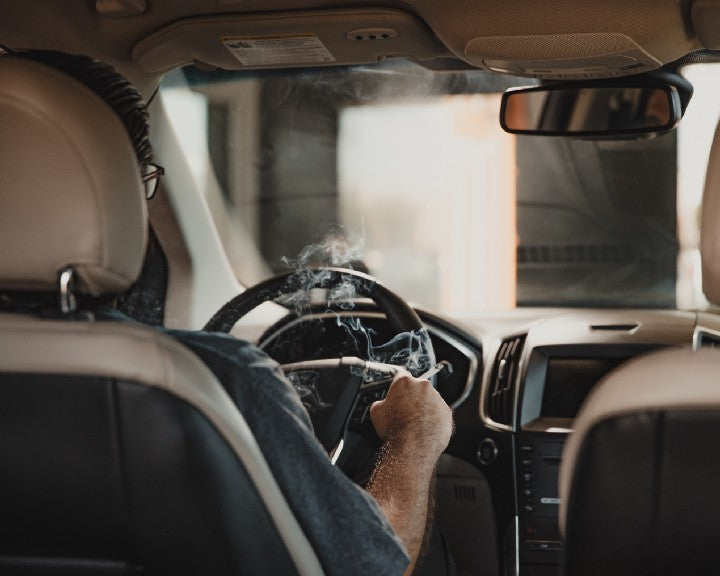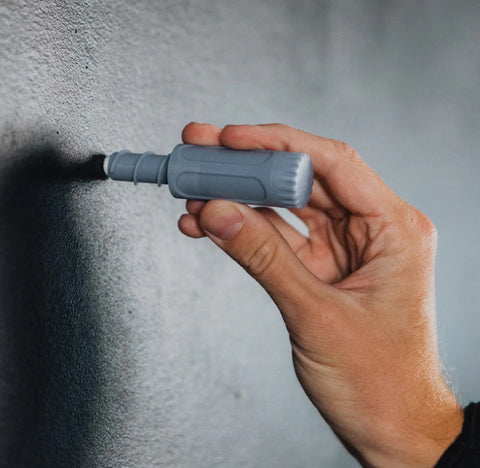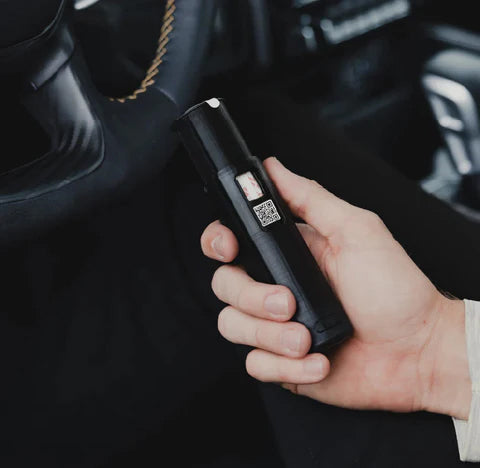No-Smoking Policies Fail to Protect Rental Vehicle Passengers

There are few sensations more unpleasant than getting into a rental car that’s saturated with a previous occupant’s smoke. Rental car companies’ no-smoking policies fail to protect rental vehicle passengers, exposing them to dangerous thirdhand smoke that potentially risks their health and wellbeing.
What is Thirdhand Smoke?
Thirdhand smoke happens when cigarette smoke combines with pollutants in the air, like nitrous oxide and ozone, to create new toxins. The smoke binds to dust and settles on surfaces, deep within seldom-cleaned crevasses — like air vents — only to be blown through the interior of the vehicle every time you turn on the air or heat. As a result, thirdhand smoke residue can linger on surfaces and in upholstery for decades.
Even if you can’t overtly smell smoke inside a vehicle, it might be present in concentrations that pose a threat to your personal wellbeing as well as that of your children and pets.
Most rental car companies have a firm no-smoking policy in place. However, no matter how strict the rule or steep the penalty, it won’t stop some smokers from breaking it. The majority of rental car companies impose a cleaning fee should a vehicle come back smelling of smoke.
What Toxins Are Present in Thirdhand Smoke?
We all know the unpleasant and often deadly effects of smoking. The carcinogenic residue can cause many health issues, including respiratory disease and cancer, whether you smoke or not.
If you can detect the presence of smoke inside a vehicle, the same tobacco toxins are present as would be in first and secondhand smoke. These compounds include nicotine, cadmium, hydrogen cyanide, arsenic, ammonia, formaldehyde, carbon monoxide, polycyclic aromatic hydrocarbons, and even radioactive materials from fertilizer used in tobacco farming.
Science tells us that no level of tobacco exposure is risk-free. Breathing in smoke from another person’s cigarette — either from second or thirdhand smoke — can be just as harmful as if you were smoking yourself.
Thirdhand smoke can even transfer from close contact, such as when residue on a smoker’s hands makes contact with a porous surface, clothing, upholstery, or another person’s skin.
All this is to say, thirdhand smoke is more than just an annoyance. It’s a serious health issue and one you should be aware of when choosing a rental vehicle or purchasing a used car.
Thirdhand Smoke Changes Your DNA
We could describe such exposure as prolonged and extended, such as if you were to spend a lot of time in a vehicle previously owned by a smoker or one that contains high concentrations of thirdhand smoke toxins.
In other words, if you keep exposing yourself to thirdhand smoke toxins, the harmful effects get worse over time. The long-term effects included DNA strand breakage and oxidative damage to DNA, which is known to cause genotoxicity.
Genotoxicity from secondhand smoke is associated with smoke-related cancers and other chronic diseases. Though concentrations of toxins are lower in thirdhand smoke than in secondhand smoke, the compounds present are exactly the same. Highly sensitive or immune-compromised individuals would be particularly at risk, so great care should be taken to limit or eliminate exposure of any kind.
Passive Smoke Exposure is a Proven Health Risk
Every single year, more than eight million people die from tobacco-related diseases. Of that number, 1.2 million deaths are attributable to passive smoke exposure, meaning second and thirdhand smoke.
Thousands of studies point to the same conclusion: no exposure to tobacco is without risk, no matter how small. Passive smoke exposure can result in premature births, congenital disabilities, cardiovascular disease, respiratory disease, cancer, and more.
Sadly, it’s not just death you need to worry about. It’s currently estimated that more than 16 million Americans live with a disease that’s directly attributable to smoking. Still, for every individual that dies from a smoking-related cause, there are 30 living with a chronic, smoke-related illness.
In addition to the potential for premature death and disease, the strain on the healthcare system is significant. Worldwide, healthcare costs to treat tobacco-related disease exceed $225 billion, $156 billion due to passive smoke exposure.
Protecting Yourself from Thirdhand Smoke in Rental Vehicles
As one of the world’s leading causes of addiction, death, and disease, there is much work to be done to lessen the far-reaching impacts of tobacco use and passive smoke exposure. Though new laws seek to mitigate the damage, it is still up to the individual to inform themselves and self-govern.
We can’t control everything in life, but when purchasing or renting a used vehicle, there is now an easy, affordable solution — and it could save your life.
You might think that the obvious presence of smoke is enough to determine a vehicle’s safety, but that’s not always the case. Cleaning compounds, good ventilation, and disinfectants can mask the smell and even decrease contamination, but they can’t remove it altogether.
Whether you’re renting a car or purchasing a used car, you want to ensure it is free of hidden threats. If you’re thinking about buying a vehicle that was part of a rental fleet or coming in at the end of a lease, look beneath the surface, past the mechanics, and take a deeper dive into its history.
You might be drawn to used car advertising that states a vehicle is smoke-free. Smoke-free cars generally have a higher resale value, so it’s to the dealer’s advantage to promote a product in this manner.
But keep in mind, there is currently no certification to verify a non-smoking vehicle. This would undoubtedly be helpful, but in the absence of such legislation, all used car buyers and renters should adopt a “buyer beware” position. In other words, a seller may advertise a non-smoking car, but without a definitive test, you are going on faith alone.
Fortunately, recent advances in thirdhand smoke testing take the guesswork out of the equation. Using a simple handheld device, consumers, prospective renters, and used car dealers can accurately detect the presence of thirdhand smoke. The test is water-based, non-invasive, and takes just a few minutes to yield a positive or negative result.
Purchase a Knowsmoke test kit at knowsmoke.com and stay safe, informed, and aware.

